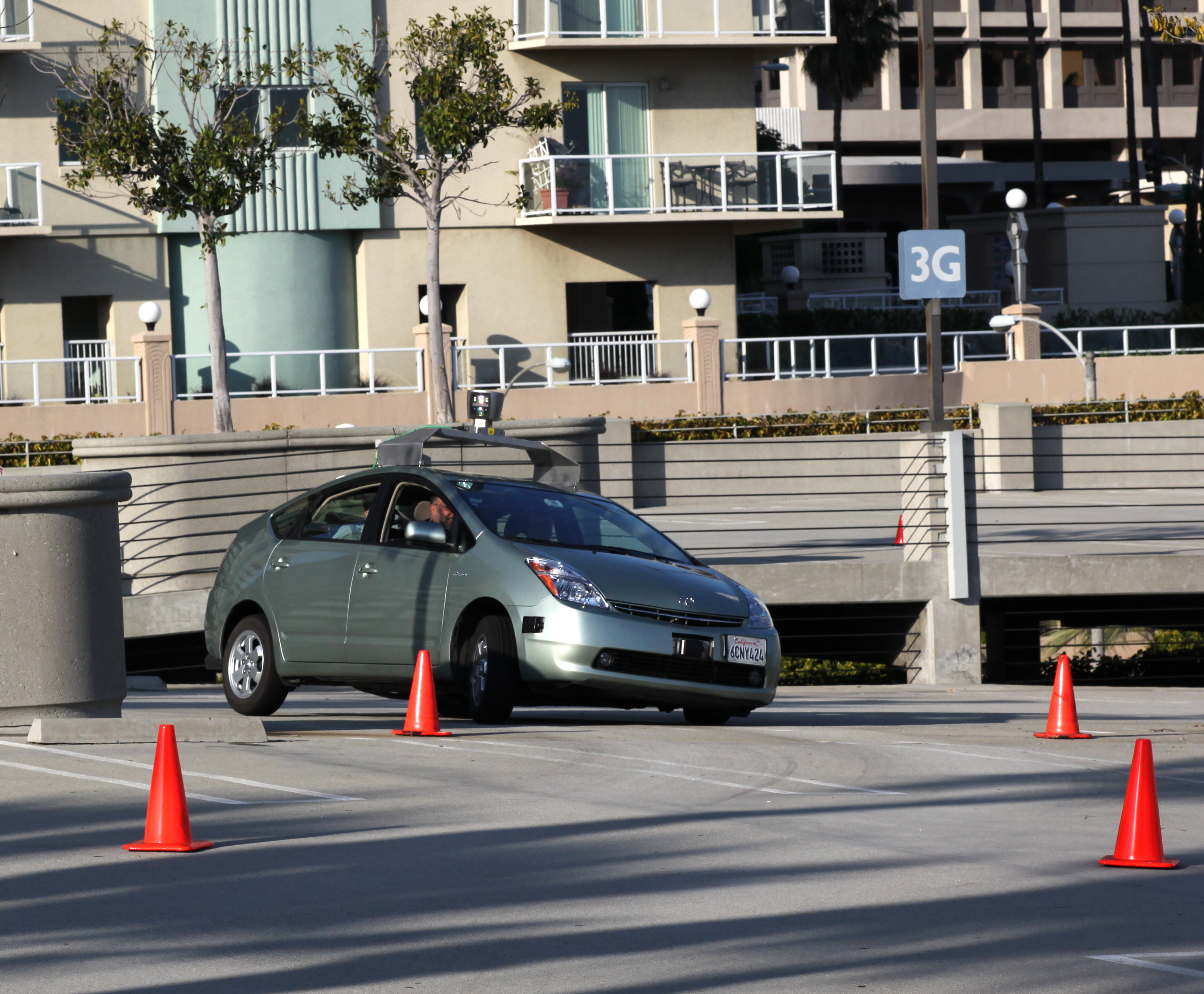Sudden obstacles in the road, traffic lights out at the intersection ahead or the driver in front of you coming to a screeching stop when you least expect it are all unnerving in a moving vehicle. They’re also common hazards of being behind the wheel. But these dangers are being minimized through development of new technology that relieves drivers of much of the responsibility of responding to potentially perilous situations on the road.
The Future is Here
Self-driving cars are no longer science fiction. Google has a fleet of autonomous vehicles that have traveled more than 300,000 miles on California thoroughfares with only one crash that occurred while the car was under a human driver’s control, according to NYDailyNews.com.

Photo by Flickr user jurvetson (Steve Jurvetson) via Wikimedia Commons
Your car insurance quotes comparison will include driverless models that feature radar, high-definition cameras, satellite-controlled applications and infrared technology used to communicate vital safety information to occupants of the vehicle. The person behind the wheel may even be able to sit back and relax while the car takes over the navigation, steering and braking, states the Washington Post. Yet, this exciting view of the future is not without serious, sobering concerns.
Is it a Cure?
Can technology really be a cure for a drowsy driver, for example? Some studies suggest that as many as 33 percent of fatal crashes may involve sleepy drivers. The Jan. 4 issue of the CDC’s Morbidity and Mortality Weekly Report says deaths and injuries occur more often in auto accidents that involve sleepy drivers. Most states that have considered or are contemplating laws regulating autonomous vehicles want to require that a licensed driver be in a self-driving car whenever it’s on the road. That driver obviously will need to be alert.
Liability
If the technology fails, is it the fault of the human driver or the vehicle’s manufacturer? Currently, when a car accident happens, the police try to determine through tire marks, vehicle damage and eyewitness accounts how the crash occurred and which driver should be cited. What happens when the blame may rest squarely with infrared detection equipment and other sensors?
State Laws
Some states that already have passed laws related to driverless vehicles reveals that governments are unlikely to let human drivers off the hook. If laws already on the books or under consideration are any indication, it’s likely that whoever is in the driver’s seat will take the blame even if it’s clear the technology is at fault.
In California, Nevada and Texas, laws require that a licensed driver be in self-driving car at all times while it’s on the road.
In Florida, a law protects the original car manufacturer from liability if anyone in the car is injured in an accident after a self-driving vehicle is modified, according to the Wall Street Journal.
In Arizona, states the Wall Street Journal, liability became a sticking point in a bill introduced by a state lawmaker. The bill was rewritten to make it clear that automobile manufacturers would not be liable for any accidents.
Autonomous cars that won’t allow a licensed driver to assume control of the vehicle are possible, but that’s not viewed as realistic, according to Edmunds.com. As long as humans travel in vehicles, responsibility probably will always ride with them.
Source: http://www.pissd.com/2013/04/how-might-driverless-cars-affect-liability/
Personal Injury Lawyer Product Liability Serious Injury Sexual Harassment Slip and Fall Accident Spinal Cord Injury
No comments:
Post a Comment